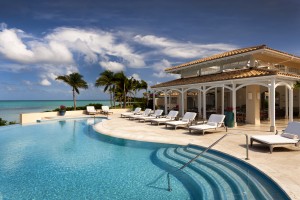The private island lifestyle certainly seems to be going down well with Antigua’s hawksbill turtles. The endangered breed is thriving due to a research program funded by private island owners.
- A luxury private island in the Caribbean is making a large impact on marine life conservation community – all through generous donations from the island’s owners
- Jumby Bay, a resort and lifestyle island located in Antigua, is the host of the world’s longest-running research programme for critically endangered hawksbill turtles
- The project has so far contributed to a three-fold increase in the nesting hawksbill population and has helped scientists gather crucial information about the rare species

Jumby Bay, Antigua – Photo Courtesy of Vladi Private Islands
Over 30 years of Marine Conservation
A luxury island in the Caribbean is making a large impact on marine life conservation community. Jumby Island, an exclusive private island resort located in Antigua, is the unusual host of the world’s longest-running research and conservation program, investigating the critically-endangered hawksbill turtle.
For over 30 years, Jumby Bay’s well-heeled homeowners – an exclusive group comprising of the likes of author Ken Follett and former-supermarket boss Lord Sainsbury – have been funding a pioneering project to monitor the behaviour and movements of Antigua’s hawksbill turtle population: The Jumby Bay Hawksbill Project.
A Three-Fold Increase to Hawksbill Populations
The project has been a roaring success, contributing directly to a surprising three-fold increase in the nesting hawksbill population – bucking an alarming trend which has seen global rates plummet by as much as 80% during the last 200 years.
During the last three decades scientists have tagged close to 450 nesting hawksbills and witnessed the birth of hundreds and thousands of tiny hatchlings. “When [the Jumby Bay Hawksbill Project] started there were about 30 individuals nesting per season,” explained project leader Dr Seth Stapleton.
“What’s even more remarkable is that we are continuing to see some of the same turtles that were first tagged in the late 1980s returning to nest here. They were originally tagged when they were probably 15 to 20 years old, and a few are still reproducing decades later.”
Jumby Bay: One of the Last Safe Havens for Hawksbills
The surprising increase to the hawksbill population is just one of the advantages brought about by the Jumby Bay Hawksbill Project. As Dr Stapleton explains, the study has also been integral in providing fundamental information about the endangered species.
“Many details we now take for granted we learned there – for example, that they don’t nest every year; they nest four or five times in one year, laying around 150 eggs each time and then skip a year or two.”
“It’s an amazing project,” added Jumby Bay’s spokeswoman, Donna Cook. “The island is one of the few places on earth where turtles are completely safe.”
To read more about the Jumby Bay Hawksbill Project, head over to their official website www.jbhb.org. Alternatively to see the fruits of the project for yourself, why not book a holiday there instead? VLADI ISLAND TRAVEL – the world’s only travel agency dedicated exclusively to private island travel – can offer you the best accommodation rates and advice for Jumby Bay.
Read more:
- Longest Running Sea Turtle Project Celebrates 25 Years
http://www.privateislandnews.com/caribbean-longest-running-sea-turtle-project-celebrates-25-years/
- Conservation Thrives on BVIs Beautiful Guana Island
http://www.privateislandnews.com/caribbean-conservation-thrives-on-bvis-beautiful-guana-island/
- Jumby Bay Turns to Farm-to-Table Philosophy as Eco-Tourism Trend Grows
http://www.privateislandnews.com/20160722-caribbean-jumby-bay-turns-to-farm-to-table-philosophy-as-eco-tourism-trend-grows/


